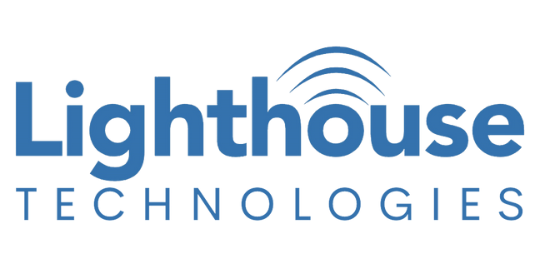How can we be more effective in our relationships? Jeff Van Fleet, Lighthouse’s CEO, thinks we should all take a lesson from Aesop’s Golden Goose…
|
“Lately I have been thinking about how I can be more effective in my relationships with my wife and daughters, at work, in my community with the Lions Club, in my spirituality, and with my friends. |
I hope this message finds you well and enjoying your summer. Lately I have been thinking about how I can be more effective in my relationships with my wife and daughters, at work, in my community with the Lions Club, in my spirituality, and with my friends. With all that I have on my plate, how can I stay in balance? How can I help those around me grow? How can I continue to drive high-quality results without burning out my team?
It brought me back to one of my favorite books: Stephen Covey’s 7 Habits of Highly Successful People. In the book, he talks about building a principle-centered approach to improving your effectiveness. Here’s an excerpt:
Effectiveness Defined
The Seven Habits are habits of effectiveness. Because they are based on principles, they bring the maximum long-term beneficial results possible. They become the basis of a person’s character, creating an empowering center of correct maps from which an individual can effectively solve problems, maximize opportunities, and continually learn and integrate other principles in an upward spiral of growth.
They are also habits of effectiveness because they are based on a paradigm of effectiveness that is in harmony with a natural law, a principle I call the “P/PC Balance,” which many people break themselves against. This principle can be easily understood by remembering Aesop’s fable of the goose and the golden egg.
The fable is the story of a poor farmer who one day discovers in the nest of his pet goose a glittering golden egg. At first, he thinks it must be some kind of trick. But as he starts to throw the egg aside, he has second thoughts and takes it in to be appraised instead.
The egg is pure gold! The farmer can’t believe his good fortune. He becomes even more incredulous the following day when the experience is repeated. Day after day, he awakens to rush to the nest and find another golden egg. He becomes fabulously wealthy; it all seems too good to be true.
But with his increasing wealth comes greed and impatience. Unable to wait day after day for the golden eggs, the farmer decides he will kill the goose and get them all at once. But when he opens the goose, he finds it empty. There are no golden eggs—and now there is no way to get any more. The farmer has destroyed the goose that produced them.
I suggest that within this fable is a natural low, a principle—the basic definition of effectiveness. Most people see effectiveness from the golden egg paradigm: the more you produce, the more you do, the more effective you are.
But as the story shows, true effectiveness is a function of two things: what is produced (the golden eggs) and the producing asset or capacity to produce (the goose).
If you adopt a pattern of life that focuses on golden eggs and neglects the goose, you will soon be without the asset that produces golden eggs. On the other hand, if you only take care of the goose with no aim toward the golden eggs, you soon won’t have the wherewithal to feed yourself or the goose.
Effectiveness lies in the balance—what I call the P/PC Balance. P stands for production for desired results, the golden eggs. PC stands for production capability, the ability or asset that produces the golden eggs.
This really made me think about how well (or not so well) we’re all keeping these factors in balance. Are we clear about what we’re producing? Are we clear about how we’re producing it? Can we repeat the results? How well are we taking care of our production capability? Are we investing enough in improvement activities to continue generating golden eggs? I’d love to hear if this relevant to you and what you are doing to continue delivering your golden eggs.
If you’re interested in joining me on my self-improvement journey, I encourage you to purchase the book and read it. Even if you read it twenty years ago, I encourage you to read it again. It’s just as relevant today.
Keep having fun,
Jeff Van Fleet
President & CEO
Lighthouse Technologies, Inc.
Software Testing | Quality Assurance Consulting | Oracle EBS Consulting
After spending over 20 years managing, developing, and deploying complex software/hardware systems for both commercial and Department of Defense (DoD) applications, Jeff founded Lighthouse in 2000 with the aim of establishing a company whose customer service was only eclipsed by the quality of its work. Armed with an encyclopedic knowledge of motivational leadership tactics and a wealth of expertise in software quality assurance (QA) processes and technical leadership, he’s both a hands-on company leader and the primary architect of Lighthouse’s celebrated workplace culture.






